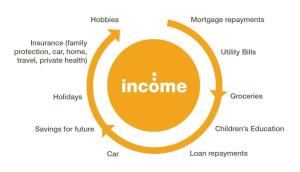Income Protection Payouts – A Boon To The Working Class
Why It’s Needed & How Much It Pays Out
According to a research study conducted by Unum and Personnel Today only an estimated 12% of employees gain staff support from their employers and for a year if they’re sick and in need of rest. This rather low chance of state benefits has seen to an increase in Income Protection Policies and working men and women taking it up. A public study was also conducted where only 9% of people said they have IP. Set against the 41% who have life insurance and the 16% who have Private Medical Insurance (PMI) that’s a pretty low comparative estimate.
These and similar studies and polls have shown the importance of Income Protection Policies to the adult worker and how it’s gradually picking up pace. The average worker can meet with injury and/or illness at odd times, making it important for them to stay secure in the present economical market. One of the most competent means of accomplishing that seems to be Income Protection. It pays out small dividends when the worker is off sick and fulfills certain other policy criteria to make them eligible for such payouts.
IP Payouts measure out a percentage of a person’s income, with 50-70% being the norm. The tax free nature of these payments at a down point in a person’s life has made IP policies quite attractive. The payouts take place once the pre-agreed time period has been crossed. This period ranges from 1-12 months since the claim being made. Common fact is the longer the ‘deferral’ period the lower the cost of premiums.
Statistics have it that IP Providers pay a high amount of claims made to them. In 2012, insurance giant Aviva published having paid 93.5% as IP claims. LV= paid 88.4%. British Friendly and Friends Mutual paid out 97% and 98% respectively.
[Source of all statistics cited: http://www.which.co.uk/money/insurance/reviews-ns/income-protection/what-is-income-protection/]




